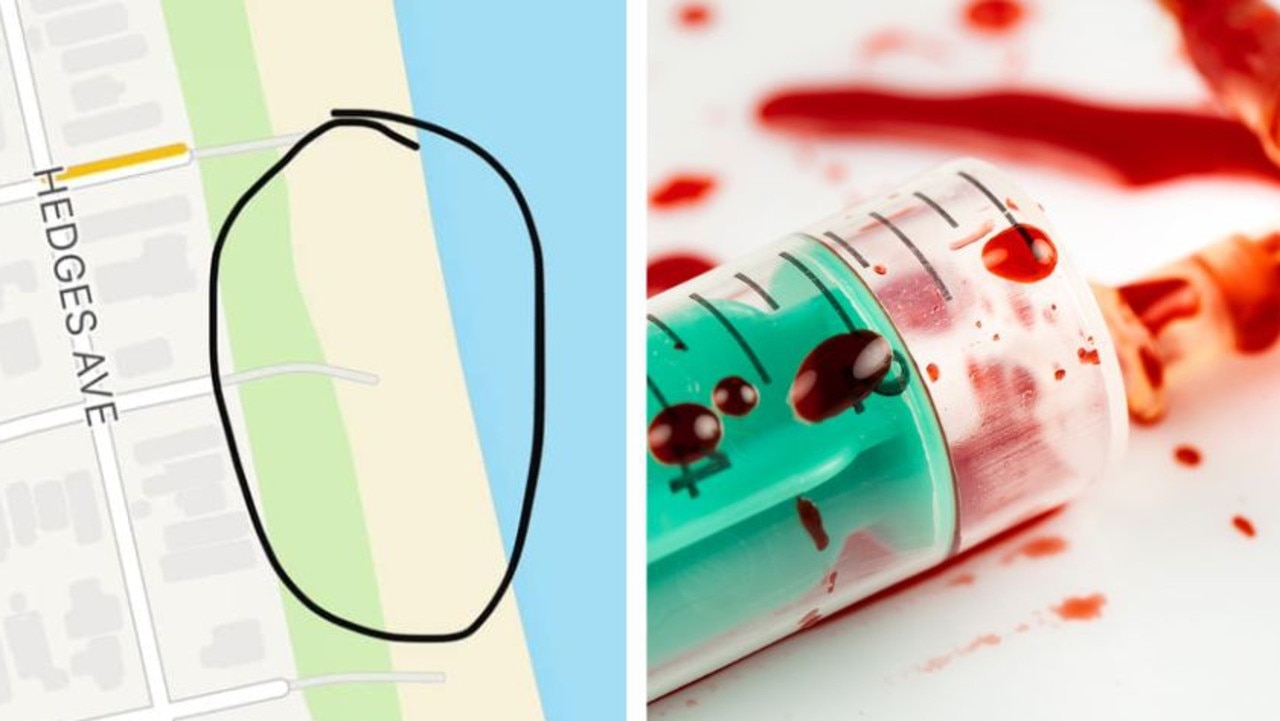How Gold Coast domestic violence program MATE is changing the world
After working in prisons, these women realised preventing domestic violence meant starting at the source. Now our city will be studied for its success.
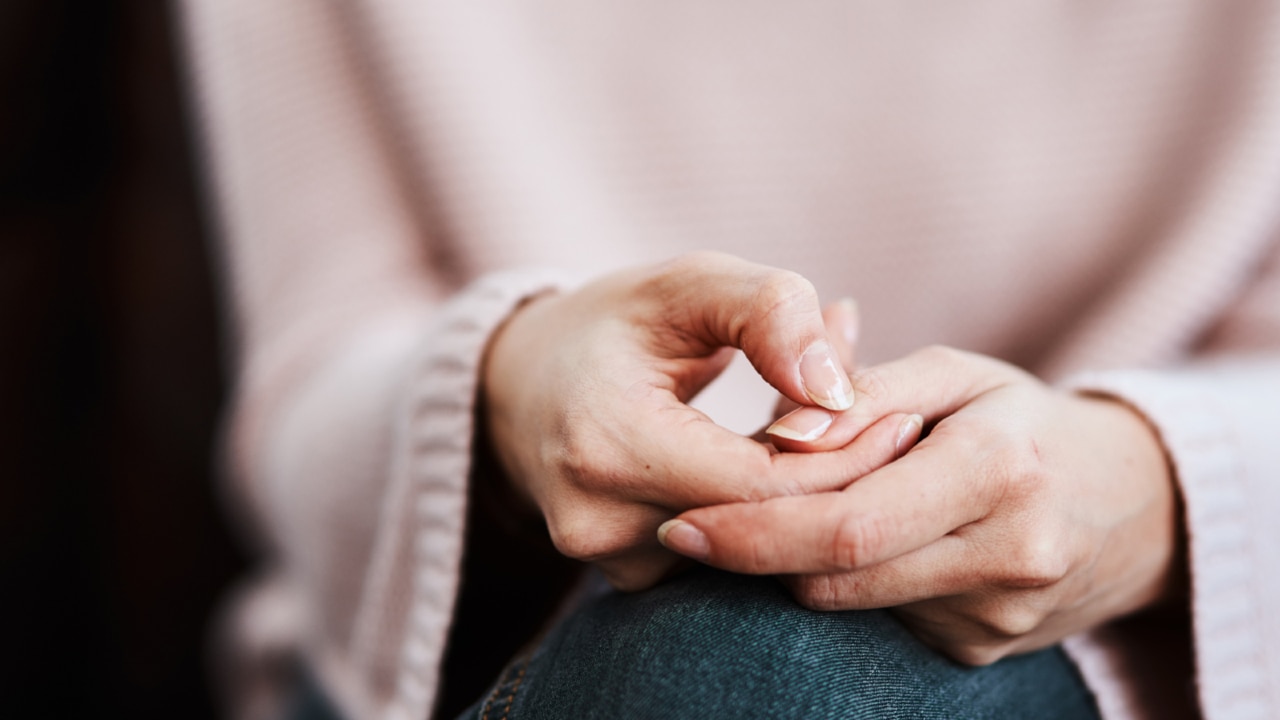
Gold Coast
Don't miss out on the headlines from Gold Coast. Followed categories will be added to My News.
It was a punchline that landed like a body blow.
Working with domestic violence offenders inside the prison system, men who had hurt and even killed their female partners, Shaan Ross-Smith had to have a tough exterior.
But listening to this horribly sexist joke, a line was crossed.
Because it wasn’t the bad guy behind bars who was demeaning women, it was the ‘good guy’ prison guard entertaining his captive audience with offensive and sexist stereotypes.
And Ms Ross-Smith literally had to laugh.
“Corrective services is a very patriarchal organisation, and as a woman you have to try to fit in. You don’t challenge the culture,” she said.
“So I didn’t, I played nice. But by not calling it out, I was contributing to the very culture that causes violence against women – sexist jokes, gender stereotypes, female objectification.
“I thought by building rapport, I was working towards solutions, but I was part of the problem.
“By laughing along, it’s sending a message upstream that you support the belief system that ends with a man in jail and a woman dead.”
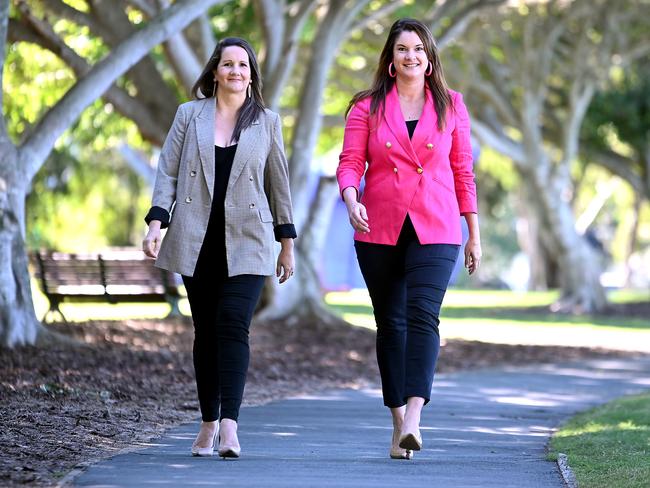
In fact, the national average shows that, every week, one woman is killed by a current or former partner.
And, devastatingly, the Gold Coast has been home to some of the most horrific and high-profile cases.
Which is why, 10 years ago, Ms Ross-Smith realised her role as a passive bystander was no laughing matter.
After attending a Mentors in Violence Prevention program, she decided she could make a bigger difference out of the ‘pointy end’ of the prison system, and then she discovered her perfect partner in preventing crimes against women.
Like Ms Ross-Smith, Kirsty Tschirpig worked within corrective services and was looking to make a deeper impact in the community.
Together, the pair worked to create the Motivation Action Through Empowerment, or MATE, program at Griffith University. Now in its ninth year, the co-directors said it had outgrown its tertiary beginnings and had gone global.
Ms Ross-Smith said the MATE Bystander program aimed to empower people who might see, hear or sense that something wasn’t right in a relationship or in a workplace, whether it be domestic violence, sexual violence, racism, discrimination, bullying or harassment.
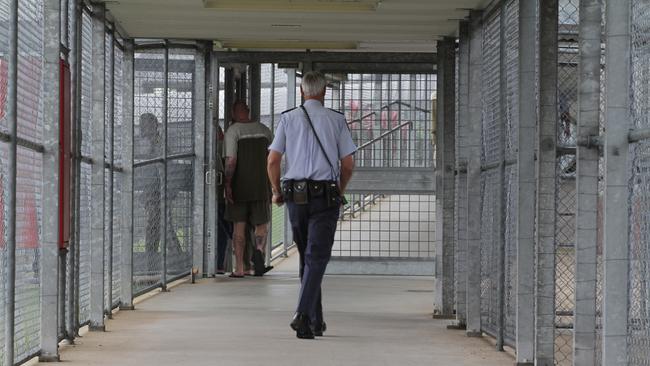
She said bystanders often felt uncomfortable in these situations and didn’t know what to do, so the program aimed to give them tools, resources and knowledge to safely intervene in ways that felt okay for each individual.
The homegrown program has been in huge demand, rolled out in corporations and governments across Australia and the world, but now its biggest opportunity is right back here on the Gold Coast.
The City of Gold Coast’s division 9 has partnered with the MATE program to provide free workshops over the next year to help keep their community safe.
Division 9 Councillor Glenn Tozer said Griffith University would track and collect data about changes in the community over that period, making the town of Mudgeeraba a guinea pig in this social experiment.
Ms Ross-Smith said research showed that if 25 per cent of a community adopted cultural change, the entire community would be transformed.
“That’s what we’re trying to do in Mudgeeraba. If we can get just a quarter of the residents there to start calling out sexism and racism, in a kind and non-confrontational way, we will see a real change in our society. Just the smallest course correction now can take us to a whole new, better place.
“It may seem impossible, but think back to the changes we’ve seen with smoking, with seatbelts, with drink driving … real change can and does happen. Now we have to apply that to domestic violence.
“When it comes to DV, all of the funding is very much in the back end – and we need that. But we also need more spent on prevention, but in the latest Budget there was all but nothing there.
“Economically, it would save so much money if we spent more on diversion. Statistics show that 88 per cent of people in custody have experienced significant domestic violence themselves. That’s just one reason we need to break the cycle. With MATE, that’s what we’re all about. The buck stops with us.”
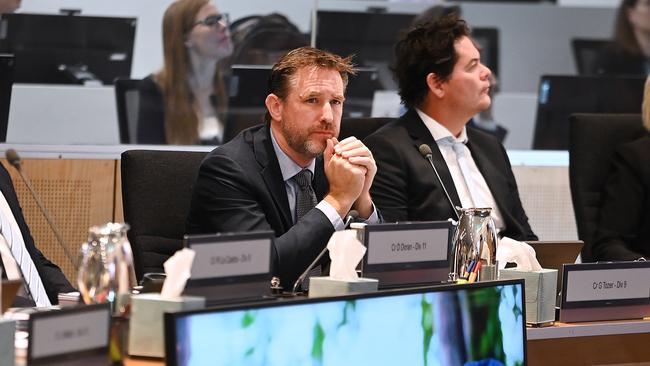
Cr Tozer said his division had allocated $30,000 in community grants for MATE to host its workshops with Griffith University to conduct the follow-up research.
He said speaking to community stakeholders like the police, it was obvious something had to change in the city.
“We’re the perfect place to try this – we have a lot of families, there is reasonably high levels of mortgage stress, which can be a trigger, and we have a mobilised community with a central location,” he said.
“When I spoke to police, who really support this program, they said up to 80 per cent of their time was spent on DV – we have to change that.
“I’m really hoping the results of this will show that this is the way forward and we can make some real change.”
Ms Ross-Smith said while the program sounded simple, it was the little changes that could create the biggest differences.
She said as well as the community rollout in Mudgeeraba, she was pushing for schools to embrace the program – not just for students but teachers and parents as well.
“Rigid gender stereotypes help fuel men’s violence against women, each other and also suicide, but schools often play a role in reinforcing these stereotypes.
“The Gold Coast father who was pushing for his son to be allowed to have long hair at school, like the girls can, is taking exactly the kind of primary prevention in action we want to see.
“It would be great to see leadership in schools have more understanding around how their rules have a ripple effect in the future. Tradition is fine, but as the Torres Strait Islanders say, it should only be kept if it is useful and supportive, otherwise it’s just old-school discrimination.
“I think many of the students have a better idea about this than the older generations, but this education can help every age at every level. It can take just one boy to change the behaviour of an entire year level.
“We have made some inroads into schools, Queensland Health has given us funding to train school nurses so that they are aware of how to handle conversations they might hear, but we’d love to really roll it out on a wide scale.”
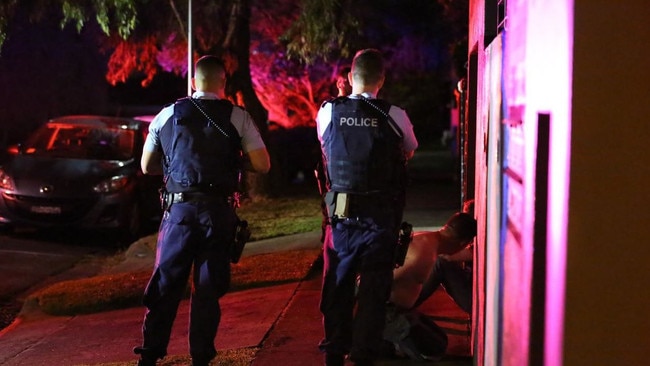
Ms Ross-Smith said part of the program was ensuring no one was shamed for their beliefs and that there was space for disagreement and discussion.
But she said learning how to call out sexist or racist words or actions was the first step in holding people accountable, something which many perpetrators never experienced until being charged with an offence.
“So many offenders say that while they knew physical domestic violence was not acceptable, their attitudes against women had never been challenged, they felt their beliefs were culturally appropriate,” she said.
“They might go to the pub and hear sexist jokes, or say horrible things about women and maybe some men felt uncomfortable but no one said anything.
“Then when they’re charged and in court or in prison, that’s the first time their mindset has been corrected. But it’s too late.
“And that takes us back to that prison setting, how are we rehabilitating these men when they’re still living in that sexist culture – both in and out of bars?”
Ms Ross-Smith said despite the many heartbreaking headlines concerning violence against women, she was feeling real hope that change was happening.
From the Mudgeeraba ‘experiment’ to the fact that MATE had outgrown its nest at Griffith University, she said the green shoots were obvious.
“We are a real success story from the university, they nurtured us and protected us and now we’re ready to fly off on our own, it’s an exciting time,” she said.
“But for me, the most exciting part is when I’m in a room with someone who really doesn’t want to be there, who is annoyed by my very presence, and then I see them stop for a moment and listen.
“Sometimes it’s so important to just sit in that uncomfortable space and reflect on who your beliefs are serving and what would it cost you to take on different thinking?
“That one little breakthrough can change the world.”
And that’s no joke.
More Coverage
Originally published as How Gold Coast domestic violence program MATE is changing the world





